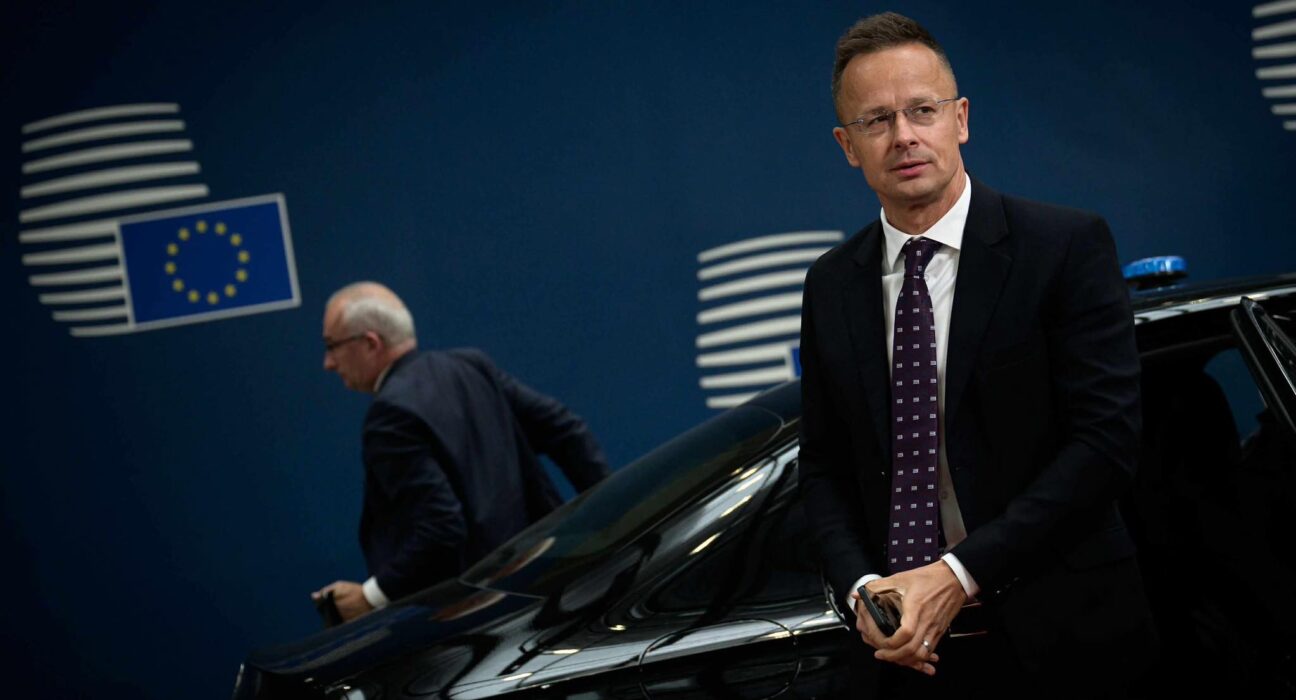As the sun rose over the charming city of Bratislava, a sense of anticipation filled the air. The streets buzzed with excitement as the people of Slovakia prepared to welcome a distinguished guest – Hungary’s Foreign Minister, Péter Szijjártó. This visit was no ordinary diplomatic mission; it was a symbolic return “home” for Szijjártó, as he stepped onto Slovakian soil, a place where his roots intertwined with a shared history.
The backdrop of this visit was not merely ceremonial; it was underscored by a significant geopolitical issue. Brussels’ proposed energy embargo had the potential to disrupt Hungary’s energy security, a concern that Szijjártó did not take lightly. He believed that such a move would not only harm Hungary but also breach previous EU exemptions. This contentious issue loomed large over the diplomatic discussions, adding a layer of complexity to an otherwise cordial visit.
As Szijjártó engaged in high-level talks with his Slovakian counterparts, the echoes of history reverberated through the halls. The shared heritage of these two nations, once united under the Austro-Hungarian Empire, added a poignant dimension to the discussions. The intertwined destinies of Hungary and Slovakia were palpable, reminding both parties of the enduring bonds that transcended political differences.
“Diplomacy is not just about agreements and negotiations; it is about understanding the nuances of history and culture that shape our interactions,”
remarked a seasoned political analyst, highlighting the intricacies at play during the state visit. The expert perspective shed light on the layers of meaning embedded in diplomatic exchanges, where gestures and symbols carried as much weight as policy discussions.
Amidst the diplomatic formalities and strategic considerations, Szijjártó found moments of personal connection that transcended politics. A shared meal featuring traditional Slovakian dishes became a bridge between nations, fostering a sense of camaraderie that went beyond official agendas. These informal interactions underscored the human side of diplomacy, where bonds of friendship could influence the course of international relations.
The visit to Slovakia held broader implications for the region, signaling a commitment to dialogue and cooperation in the face of geopolitical challenges. The intertwined fates of Central European nations underscored the importance of solidarity in navigating turbulent times. By engaging in constructive dialogue, Hungary and Slovakia demonstrated a willingness to overcome differences and seek common ground for the greater good.
As the sun set on Szijjártó’s visit to Slovakia, a sense of cautious optimism lingered in the air. The discussions may not have resolved all the thorny issues at hand, but they had laid a foundation for continued engagement and understanding. The symbolic significance of Szijjártó’s “homecoming” resonated beyond the diplomatic circles, reminding people of the power of reconciliation and mutual respect in shaping a shared future.
In a world fraught with tensions and uncertainties, the state visit to Slovakia offered a glimmer of hope – a reminder that even amidst differences, bridges could be built, and relationships nurtured. As the diplomatic caravan departed, leaving behind echoes of shared history and future possibilities, the legacy of this visit endured as a testament to the enduring bonds that connect nations and people.

